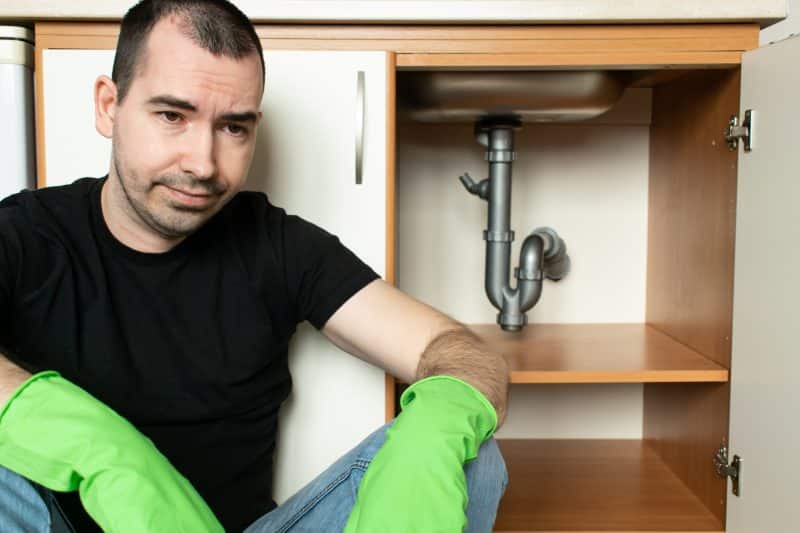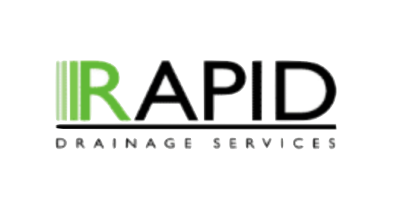How to Identify And Prevent Drain Blockages?
How to Identify And Prevent Drain Blockages?
Few household problems can ruin your day quite like a blocked drain. One minute you’re enjoying a normal morning routine – brushing your teeth, doing the washing-up, maybe even a long hot shower – and the next, the sink’s refusing to drain, the shower’s filling up, and there’s an odd gurgling sound echoing through your pipes.
Sound familiar? You’re not alone. Blocked drains are one of the most common plumbing issues in the UK, and while they might start small, they can quickly escalate into serious (and costly) problems if left unchecked.
The good news? With a bit of awareness and routine maintenance, you can stop most blockages before they even start.
Let’s take a look at how to spot the warning signs, prevent build-ups, and keep your drains flowing freely, all with a little help from the experts at Rapid Drainage.
1. How to Identify a Blocked Drain
Early detection is the key to avoiding bigger issues later on. The sooner you recognise the signs, the easier (and cheaper) it is to fix. Here are the most common indicators that you may have a blockage forming in your system:
🌀 Slow Draining
If your sink, bath, or shower takes forever to empty, that’s a tell-tale sign of a partial blockage. It means debris is already building up in your pipes, narrowing the passage for water to flow.
🔊 Gurgling Sounds
Hearing bubbling or gurgling noises when water drains away? That’s the sound of trapped air escaping through the water, often caused by a blockage somewhere along the line.
💩 Foul Odours
A persistent unpleasant smell rising from your drains suggests stagnant water or decomposing debris lurking inside your pipes. It’s unpleasant, and a clear sign something isn’t right.
💧 Backups and Overflows
If water starts backing up into sinks or bubbling out of the toilet, you’ve moved from a minor blockage to a full-blown plumbing emergency. When that happens, call a professional immediately.
Pro Tip:
If multiple fixtures in your home are draining slowly (e.g. your kitchen sink and your shower), the issue could be deeper in your main line, not just a local blockage.
2. Common Causes of Blocked Drains
Before we jump into prevention, it’s worth understanding what actually causes most blockages. Common culprits include:
Grease and fat solidifying in kitchen pipes.
Hair and soap scum building up in bathroom drains.
Wipes and sanitary products flushed down toilets.
Food scraps or coffee grounds washed down the sink.
Tree roots invading underground pipes through small cracks.
Mineral build-up in older plumbing systems.
Knowing the source of the problem helps you target your prevention efforts effectively.

3. How to Prevent Drain Blockages
Now for the good part – keeping your drains clean, clear, and clog-free. These tried-and-tested habits will go a long way towards preventing those dreaded blockages.
💦 Regular Cleaning
Once a week, pour a kettle of boiling water down your sink or shower drain to flush away grease and soap residue. For a deeper clean, mix baking soda and vinegar, pour half a cup of each down the drain, wait 15–30 minutes, then rinse with hot water.
This natural method helps break down minor build-ups without using harsh chemicals that can damage your pipes.
🧴 Install Hair Catchers
Hair and soap scum are the number-one cause of bathroom drain clogs. Fit simple hair catchers or drain strainers in sinks, showers, and baths, they’re cheap, effective, and save a lot of hassle later.
Empty them regularly (it’s not glamorous, but it’s necessary).
🍳 Dispose of Grease Properly
Never pour cooking oil or fat down the sink. Even when hot, it will cool and solidify inside your pipes, trapping debris and forming blockages.
Instead:
Let grease cool and pour it into a container (like an old jar).
Once solid, dispose of it in the bin.
Some local councils in Essex even offer oil recycling services – check your local authority’s website for details.
🧽 Use Mesh Screens in Kitchen Drains
A mesh drain screen catches food particles before they sneak into your pipes. Empty it into the bin after washing up.
It’s especially helpful for busy households or commercial kitchens that produce a lot of food waste.
🚽 Flush Wisely
The golden rule: the only things that should go down the toilet are the three Ps – pee, poo, and (toilet) paper.
Wet wipes, cotton pads, nappies, and feminine hygiene products might claim to be “flushable,” but in reality, they don’t break down easily. Instead, they build up and cause serious blockages in both household and public drains.
If you’ve ever heard of the London fatbergs, you’ll know what happens when wipes and grease combine underground – it’s not pretty.
🧰 Regular Maintenance
Even with good habits, small amounts of residue can still build up over time. Scheduling regular professional drain cleaning ensures your pipes stay clear and functional year-round.
At Rapid Drainage, we provide:
CCTV drain surveys to detect build-up or early damage.
High-pressure water jetting to clear stubborn residue safely.
Preventive maintenance plans for homes and businesses across Essex.
It’s like an MOT for your drains – far cheaper than dealing with a major blockage later.
⚠️ Avoid Chemical Drain Cleaners
Off-the-shelf drain cleaners may seem like a quick fix, but they often do more harm than good. The harsh chemicals corrode pipes, especially older ones, leading to leaks or cracks over time.
Instead, stick to natural alternatives like vinegar and baking soda or call in a professional for safe, thorough cleaning.
🏡 Educate Everyone in Your Household
Prevention is a team effort. Make sure everyone in your household knows what can and can’t go down the drain, especially kids and teenagers who may be less mindful of what ends up in the sink.
A quick family chat about “drain dos and don’ts” can save you a world of plumbing pain.
4. Advanced Drain Prevention Techniques
If you’ve dealt with repeat blockages or have an older drainage system, it may be time for professional-grade solutions.
💧 Hydro Jetting
This advanced cleaning technique uses high-pressure water jets to blast away years of built-up grime, grease, and even tree roots from your pipes. It’s safe, eco-friendly, and far more effective than plungers or home remedies.
🌳 Tree Root Removal
Tree roots naturally seek moisture – and your underground pipes are a tempting target. Once they penetrate the pipework, they can cause cracks, leaks, and serious blockages.
If you suspect root intrusion (slow drains, repeated clogs, or damp patches in your garden), schedule a CCTV drain inspection. Our team at Rapid Drainage can identify the issue and use root cutting tools to safely remove the growth without excavation.
5. When to Call the Professionals
If you’ve tried plungers, boiling water, and natural cleaners but your drains are still slow or smelly, it’s time to call in the experts.
Professional engineers can:
Locate the exact source of the blockage.
Use high-powered equipment to clear it safely.
Inspect your system for damage or future risks.
At Rapid Drainage, we specialise in clearing blocked drains across Essex – fast, clean, and hassle-free. From emergency callouts to routine maintenance, our team is available 24/7 to get your system back to full flow.
6. Prevention is the Best Cure
A blocked drain might start as a small inconvenience, but left unchecked, it can turn into a plumbing nightmare. The best way to protect your home is through awareness and prevention.
By keeping an eye out for early warning signs, adopting good daily habits, and investing in regular professional maintenance, you’ll save time, money, and a lot of stress in the long run.
And if the worst happens? Don’t panic – Rapid Drainage is just a call away.
📞 Call Rapid Drainage today
🌐 Visit https://rdrainage.co.uk/contact-us/ to book professional drain cleaning or unblock blocked drains in Essex.
Because clean, free-flowing drains make for a happy (and smell-free) home.


